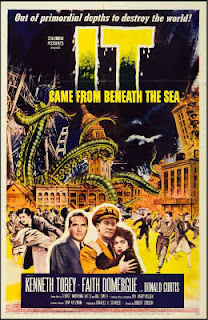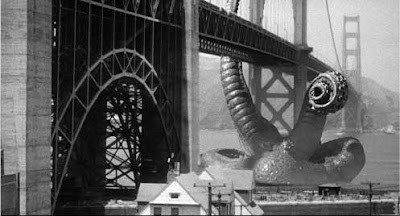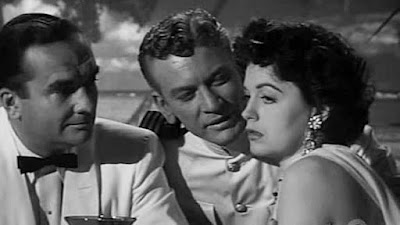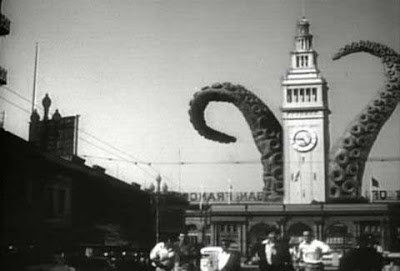It Came from Beneath
the Sea

Director: Robert Gordon
Year: 1955
Rating:
6.0
Ah, the 1950's. Hula-hoops, Eisenhower, black
and white TV, Elvis, McCarthyism, Russkies, radiation and monsters and aliens.
It was a period of paranoia and fear and that engendered many wonderful low-budget
sci-fi films that played into that. Youngsters who grew up watching those
films later went on to make some of the great sci-fi films of the 1970s and
80's. Looking back now they may seem a little hokey but they were really
the beginning of our cinematic love for the fantastic. Exploring space, alien
invasions and giant monsters all came out of our fear of the atomic bomb,
the Communists, fascism and the dangers of radiation. This one falls into
the radiation genre. Perhaps coincidentally it was produced one year after
Godzilla but likely more influenced by the 1953 The Beast from 20,000 Fathoms
in which a monster is released from a state of frozen hibernation by an atomic
bomb test.







